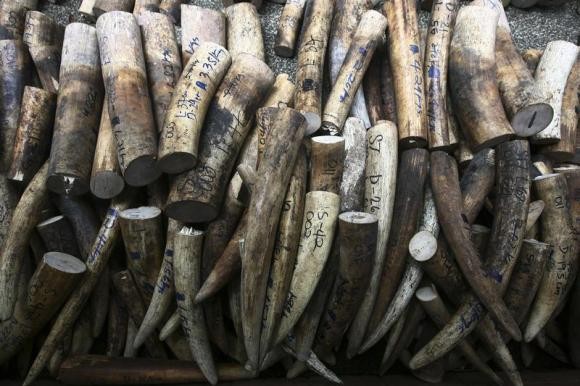After chasing wildlife smugglers with an international joint law enforcement campaign, authorities have detained 182 suspects. They also confiscated over 600 kilograms of illegal wildlife goods.
The campaign targeted the illegal trade involving endangered plants and wildlife, according to the State Forestry Administration.
Officers have gathered 292 kilograms of worked ivory products, 226 kilograms of pangolin scales, 16.2 kilograms of rhino horn products, and 10 pieces of raw ivory. They were also able to seize live animals such as birds and turtles.
The 23-day campaign started on May 4.
The suspects were involved in illegal trading and trafficking of endangered wildlife and animals, the administration stated.
The State Forestry Administration worked hand in hand with a total of 62 countries, including Thailand, South Africa, Germany, France and the United States. Together, they rallied against cross-border trafficking that usually involved a variety of animals and plants like rhinos and redwoods.
The campaign, bearing the code name Cobra, is regarded as the largest scale of joint law enforcement action since 2013, as it tallied the most number of participating countries.
The countries discovered 300 contraband cases and captured over 200 wildlife traffickers. The project was backed by the Interpol and the World Customs Organization.
"We attach great importance to the action and enhanced law enforcement cooperation with some African countries, including South Africa and Kenya," administration head Zhao Shucong said, adding that the command center was based in Thailand.
"We share intelligence and conduct joint actions that greatly reduce the occurrence of certain crimes," he added.
In recent years, Chinese criminals have colluded with gangs in Africa to smuggle wildlife contraband and sell it in black markets for huge profits, said Meng Xianlin, director general of the Endangered Species of Wild Fauna and Flora Import and Export Management Office.
"The criminal gangs tend to be professional. Gang members assume different tasks, including purchasing, smuggling, transport and sales, to form a secret chain of interest," Meng added.
Most of the confiscated products were smuggled from Africa either through mail or travelers who carried them in their luggage, General Administration of Customs deputy director Hu Wei added.




























